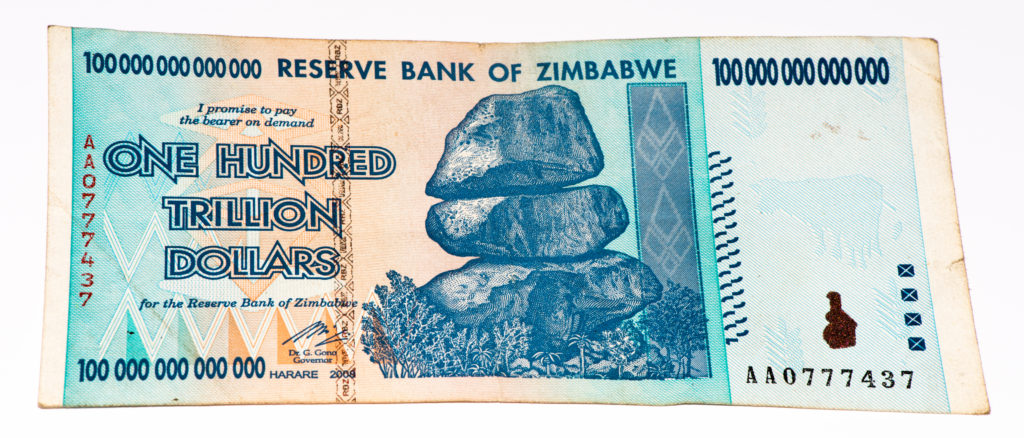Ronald Peterson, DDS MS

I’ve had my share of sleepless nights. We all have. Sometimes when I’m awake at 3:30, our Chihuahua, who often sleeps between my wife and me, will look up from her pillow to see what I’m doing.
Her eyes seem to say, “What’s the matter, can’t sleep?” And no, I couldn’t.
Sometimes I’d be worrying about the kids, or my parents, or something that had upset me at work. But usually, it was money that interrupted my nighttime bliss.
Money is the big topic. My subtopics would vary. “Is this investment brilliant or stupid? Do we really need to add on to the house? When is the next college tuition due? And what about retirement?” Of course, these all didn’t hit at once, but the additive effect was a pretty heavy weight on my shoulders, and it lasted a long, long time.
I’ve had my share of sleepless nights. We all have. Sometimes when I’m awake at 3:30, our Chihuahua, who often sleeps between my wife and me, will look up from her pillow to see what I’m doing. Her eyes seem to say, “What’s the matter, can’t sleep?” And no, I couldn’t. Sometimes I’d be worrying about the kids, or my parents, or something that had upset me at work. But usually, it was money that interrupted my nighttime bliss. Money is the big topic. My subtopics would vary.“ Is this investment brilliant or stupid? Do we really need to add on to the house? When is the next college tuition due? And what about retirement?“ Of course, these all didn’t hit at once, but the additive effect was a pretty heavy weight on my shoulders, and it lasted a long, long time.
Ok. I get it. Life isn’t fair. Here’s another story:
I’m the financial mule for my family, and I can hardly pull the wagon.

What’s going to happen if I can’t keep it up?
What if I have to slow down, or even quit?
Don’t they know that I can’t do this forever?
Early in my career, I asked a more mature dentist how a colleague we knew could afford the new airplane he bought.
My wiser mentor replied, “Dentists usually don’t have a lot of money, but they usually do have excellent credit scores.” So much for my, “Life of the Rich and Famous” fantasy.
DENTISTS’ FEAR NUMBER ONE
So, DENTISTS’ FEAR NUMBER ONE is, “I don’t have enough money, and I’m going to need it.How can I make that happen? What can I do?” Here’s part of the answer……it’s not going to come from the lottery or from a hot stock tip or from a great, quick hit investment. There is something you can do to fix it. But, don’t delay. You don’t have forever. More on that, later.

DENTISTS’ FEAR NUMBER TWO
But what if you’ve been successful and saved some money, have substantial assets, and a good retirement plan. You believe you have enough to provide you with 80% of your current income. (Congratulations! You are one of the 15% that have actually accomplished this fete!) The question is, can you depend upon it? Which leads us to
DENTISTS’ FEAR NUMBER TWO: Will my money last?
Will I outlive my money? Can I earn enough from my savings to allow me to protect the bulk of my capital? What about the unknowns? Is serious inflation coming? Can I trust the government to protect the value of my money? Wow. Those are some serious questions! Perhaps a little historical review will shed some light for us. These brief stories will make you think twice about the future.
The largest denomination currency note every printed is the One Hundred Trillion Dollar bill from Zimbabwe. That is an eye-popping number. Now the scary part: In 1980 a Zimbabwe dollar was worth more than a US dollar, and slightly less than a British Pound Sterling. What happened? In 1980 Robert Mugabi was elected president of the newly independent Zimbabwe, a former British colony known as Rhodesia. Rhodesia was, at that time, the wealthiest country in Africa and exported agricultural products and manufactured goods, and had a thriving mining industry. But President Mugabi wanted social justice and began a program to fundamentally reform Zimbabwe through social justice and income redistribution, as well as nationalizing private property and granting it to friends, relatives, and cronies. It wasn’t long before Zimbabwe couldn’t feed itself and all sources of national income faded away. Their GDP collapsed. Food was imported to feed the people, but the government had no money. So they did what all governments do in times of financial crises…. they printed more. They kept this going until 2009, when the monetary system completely collapsed and the government abandoned its currency. When this finally happened, the rate of total inflation since 1980 was calculated at 1025. One hundred trillion dollars would not buy a bus ticket across town.
I know…..nice story, but that was a third world African country, not the good old US of A. Well, just think about it a minute. Doesn’t some of the Zimbabwe story sound just a little familiar? The truth is, it’s a fairly common story of how governments behave, and not just in the third world. In 1913, Argentina was ranked as the 10th wealthiest country per capita in the world! And, until 1930, when its government abandoned the gold standard, Argentina led both Australia and Canada in population growth, total national income, and per capita income. Since then, with the advent off Peronism, the country has defaulted on its national debt several times, and is about to do it again. Argentina has slipped into reverse and dropped from a first world economy to a nightmare of fascism.
So what about us? Doesn’t the Federal Reserve protect the value of our money? Not hardly. The Fed was formed in 1913. US currency was mostly stable from the founding of our country until then, with the exception of the Civil War when The Union experienced its first foray into serious deficit spending to support the war effort. However, the debt was eventually repaid after the war, and the value of the US dollar stabilized. But, since the Fed took over, things are different. A US dollar in the year 2020 has the purchasing value of 4 cents from 1913. So much for fiscal responsibility.

DENTISTS’ FEAR NUMBER THREE
DENTISTS’ FEAR NUMBER THREE: “I’ve saved, planned, invested, and lived responsibly.I should be ok in the future.But what about the Black Swan? Could something happen that will destroy my wealth or even confiscate it?” We know what can happen to the value of our money. Can we really survive $22+ trillion in debt? And, if we do control inflation, are there other risks? And the answer is, YES, in all caps. The following countries have recently confiscated part or all of their private citizens’ retirement accounts: France, Ireland, Portugal, Argentina, Hungary, Poland (and there are more). US citizens have about $28 trillion in retirement accounts. Do you think Uncle Sam wants to get his hands on that cash? The first hint came recently when President Obama floated the MyRA proposal that would eliminate existing personal retirement plans and force savers to invest in government bonds. Wow. What a great deal that is! And France recently levied a “wealth tax,” which resulted in some individuals paying taxes that exceeded their annual income. Governments are desperate. Don’t think for a minute they don’t want everything you have.
OK. You have my attention. What’s your solution?
The short answer is you and your practice. But, not in the way you think! Many dentists want to build up their practice and then sell it for a good piece of change. That may be fine for some, but how much cash will you actually receive from the sale of your practice? Think about these numbers:
Most practices sell for about 70% of last year’s collections. Certain factors can raise or lower that amount.
·You must pay tax on the money you receive. Some will be at Capital Gains rates, and some will be at Ordinary Income rates. You will probably lose 30% of the money to taxes, and perhaps a little more.
·What will you do with the money from the sale?Where can you invest it for a reasonable return?
Let’s do the math. A million dollar (collections) practice sells for $700,000. The tax bill is 30% or $210,000. You receive $490,000. You purchase Treasury Certificates for 2.75%. Your annual income from your investment is $13,475, before taxes! Don’t spend it all in one place.
OK. I don’t like that idea. In fact, it’s terrible. What’s your solution?
First, let’s look at what we can do to overcome all the scary things we’ve talked about so far. The best solution for growth, life style, and retirement has the following attributes:
It provides more money, both now and in the future.
It allows me to take more time off, if I want to.
It pays the bills when I am gone.
It provides an additional income stream, both now and in the future.
It allows me to adjust for inflation, so I’m not so vulnerable to outside influences on my money.
The income steam can continue into retirement.
The capital asset grows in value.
I maintain the capital asset that generates the income, and I can eventually sell it, if I wish.
That sounds good. But you said the answer was my practice. How can my practice do all of those things?
It can, but it doesn’t just happen. You need a plan to do it and you must follow the plan. You have to want it and be willing to work for it. The system is simple in appearance but complex in execution.You must be committed and willing to do what it takes. If not, this program may not be for you.
All right. Tell me more. How successful are you with this program and how successful can I be?
It’s risky to say, “The sky’s the limit,” but, “The sky’s the limit!” However, all practices are different. That’s why you need to establish your goals and vision and make the plan fit the goal. There are many steps and a lot of training. But it works, and it works very well.
Give me some examples.
1) Dr. One in Florida. His office collects $4 million annually and he makes 12 to 15% of that amount each year. But, he doesn’t see patients any more and hasn’t picked up a hand-piece in eight years!
2) Dr. Two in Oregon. His practice collected $2.5 million in2015 and $5.2 million in 2019. He continues to work but is reducing his time in the office and enjoying life more.
3) There are many more.
Look, I’m just not an impulsive guy. What additional information do you have for me?
Learn more about how Whitehall works to turn your practice into a passive income stream!


